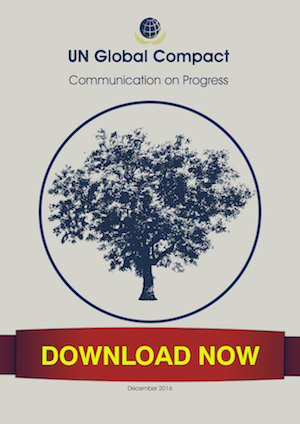Our Commitment to the UN Global Compact
[column width=”5/6″ title=”” title_type=”single” animation=”none” implicit=”true”]
As we draw the calendar year to a close, we are delighted to share with you how we, as approved and active participants of the United Nations Global Compact alliance, have maintained our commitment to the world’s largest corporate sustainability initiative and applied their principles in very tangible ways across our day to day business.
As part of our commitment, we submit an annual report on what we are doing that illustrates our activity in applying these principles, which we detail below:
[/column]
[column width=”1/6″ last=”true” title=”” title_type=”single” animation=”none” implicit=”true”]
[/column]
Letter of Continued Support from CEO, Anthony J.…

